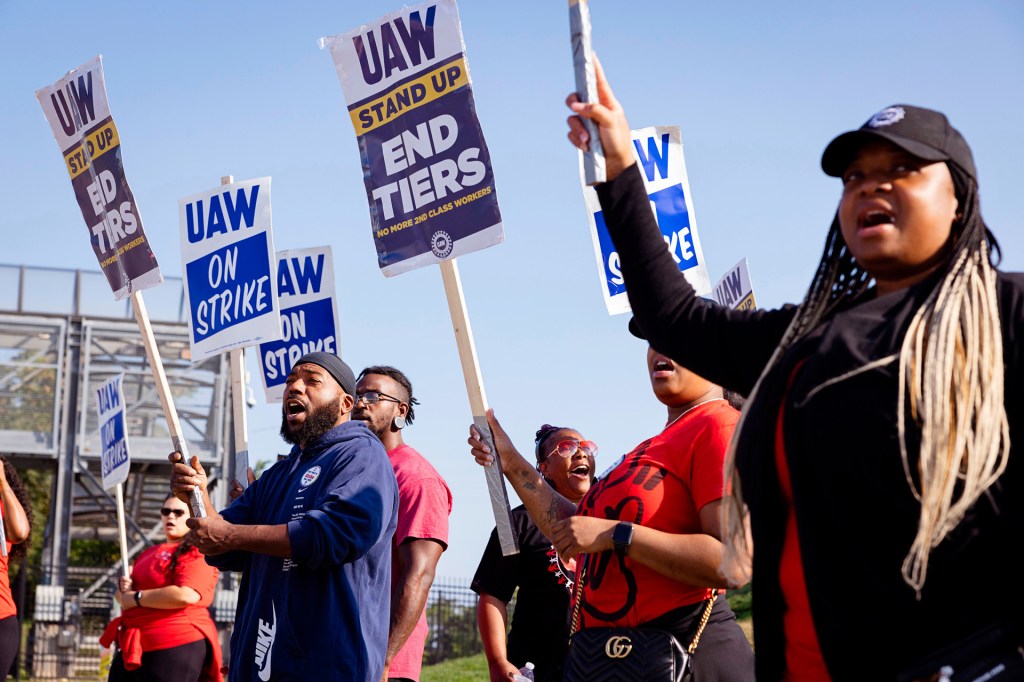Autoworkers Strike

Some 7,000 autoworkers in Michigan and Illinois joined an ongoing strike against Ford and General Motors (GM) on September 30. They’re trying to get job protections and higher pay from car companies. Another 18,000 American autoworkers have been striking for weeks.
Raneal Edwards works in a GM factory in Michigan. “I feel like they don’t understand that this is about more than wages,” she says. “It’s about having security at our jobs.”
The United Autoworkers Union is negotiating with Ford, GM, and Stellantis. It wants a 40% raise for workers, and pensions. These are payments made to a worker after retirement. The union wants to end the tier system, by which people are paid differently according to their hire date. And it wants top wages at electric vehicle (EV) factories. Workers who are making gas-powered cars may later need jobs at these factories.
The companies say they’ve spent a lot of money to make more EVs. Paying workers too much will make it hard to compete with other automakers, they say. They’re willing to give some raises. But Jim Farley, Ford’s CEO, says he won’t jeopardize the company’s future by agreeing to all of the union’s demands. “We will never do it,” he says.
Stop and Think! Why is this strike newsworthy? How might the strike affect people who buy cars? How do you think the strike will end?












